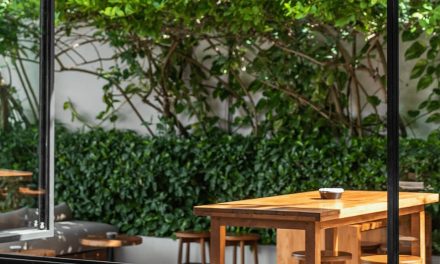When I first set foot in Ubud, the artistic heart of Bali, I was neither a seasoned traveler nor an enthusiastic market-goer. However, as soon as I wandered into the local markets of Ubud, I realized I had stumbled upon a treasure trove of cultural experiences. More than just shopping hubs, these markets are the pulse of Ubud’s vibrant community, offering a playful mix of colors, scents, sounds, and unforgettable interactions that painted my trip with unforgettable colors. Allow me to share my adventures and insights from these lively spaces!
The Atmosphere: A Feast for the Senses
Imagine this: the moment you enter the Ubud Art Market just off the Monkey Forest Road, you’re greeted by a kaleidoscope of colors from handmade sarongs, intricate jewelry, and vibrant paintings. The air is rich with the tantalizing smells of fresh spices, fragrant flowers, and street food wafting from nearby stalls. It feels alive!
During my first visit, I was overwhelmed by the sheer variety of items on display. I remember pausing at a stall bursting with batik fabrics and striking up a conversation with the vendor, a young Balinese woman named Putu. With a warm smile, she shared that each piece tells a story, often inspired by the island’s nature and culture. Listening to her passion brought the art to life in a way that a mere description couldn’t.
Dive into Local Culture
One of the unique aspects of Ubud’s local markets is that they are not merely places to buy souvenirs—but gateways into Balinese culture. The Ubud Traditional Market, located at the heart of the town, is often buzzing with locals doing their daily shopping. Here, you can find fresh produce, herbs, and the famous offerings—little woven baskets filled with flowers and incense, offered daily to appease the gods.
I watched in awe as an elderly woman expertly placed delicate frangipani flowers into her offerings. I asked her about the significance of these flowers in Balinese spirituality, and she patiently explained that they symbolize purity and beauty. Engaging in such conversations provided me with profound insights into the island’s spiritual practices and everyday life.
Taste the Flavors of Ubud
No visit to Ubud’s markets would be complete without indulging in its culinary delights. While you peruse the aisles, keep your eyes peeled for local snacks. Vendors sell everything from freshly made tempeh to sweet and sticky klepon (rice cake balls filled with palm sugar), and I must tell you—each bite transports you to a place of newfound joy.
One morning, I found myself faint from the heat and stopped at a small stall for some coconut water. The vendor, a jovial man with laughter lines etched across his face, insisted I try a traditional Balinese dish called Nasi Campur. As I savored the flavors of rice, vegetables, meat, and spices, I felt a connection to the culture that I had not anticipated. Sharing that meal with him, sitting on a rickety bench amidst bustling activities, was a highlight of my trip.
Bargaining: A Dance of Culture
Let’s talk about shopping and negotiations at Ubud’s local markets—a rite of passage for any visitor! I know bargain-hunting can be a daunting experience, especially in a new culture, but it’s truly an intrinsic part of the market culture in Ubud. When I first attempted to haggle over a beautiful carved wooden elephant, I awkwardly bid far less than the vendor’s asking price.
The vendor, a sprightly elderly man, laughed heartily and said, “You drive a hard bargain, but I love the spirit!” His smile put me at ease, and we settled on a price that felt fair for both of us. Through this experience, I learned that bargaining isn’t just about getting a deal; it’s a form of interaction that honors the craft and the craftsman.
Tips for a Memorable Market Experience
1. Go Early: Arriving early not only means cooler temperatures but also fresher produce.
2. Engage with Locals: Don’t hesitate to chat with vendors; they often share amazing stories behind their products.
3. Bring Cash: While some places accept cards, many small vendors only deal with cash, so have some local currency on hand.
4. Try New Things: Be adventurous with your food choices; you might discover a new favorite dish!
5. Respect the Space: Remember that these markets are a part of everyday life for locals, so be polite and considerate.
Conclusion
Ubud’s local markets have transformed the way I view cultural experiences—far beyond mere transactions; they are interactions steeped in stories, traditions, and community spirit. The friendly exchanges, delicious foods, and stunning crafts created lasting memories that I carry with me to this day. Whether you’re an experienced traveler or planning your first adventure in Bali, I encourage you to immerse yourself in the cultural experiences at Ubud’s local markets. Who knows what treasures you may find beyond the souvenirs? So, are you ready to pack your bags and explore the vibrant tapestry of Ubud’s markets? Trust me; each visit is bound to leave you with a smile and a heart full of stories.






